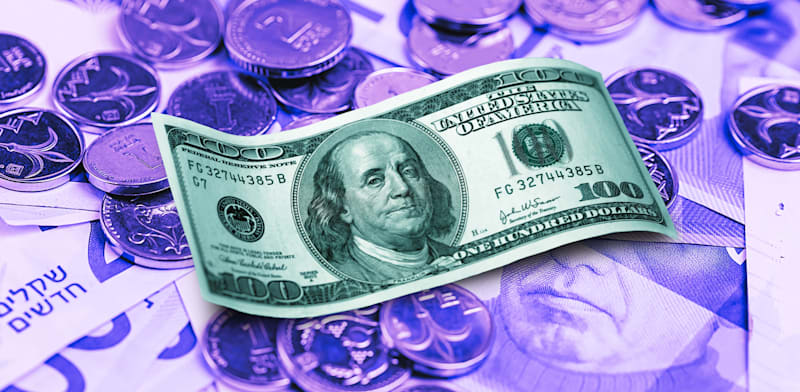There’s a big, bad secret going around the world of stealth startups which is rarely bestowed upon newbie first-time founders. Sadly, keeping this secret under wraps is what leads those newbies to dig themselves into deep holes of debt, drain their life savings, or perhaps worse, waste months unsuccessfully “fundraising” (or trying to) for costs they didn’t need. I’m referring to the secret regarding what makes a task, a service, or a product “professional” enough to release to the public.
So many first-time founders — particularly those who come from prestigious corporate backgrounds at well-resourced large firms — assume that in order to create a “professional grade” product, service, or even company logo, one must hire a professional. Let me put the kibosh on that myth right now: As a startup founder and CEO, you are now the professional in charge. Therefore, you, yourself are allowed (and in many cases expected) to hands-on execute those “professional”-level tasks.
Yes, you are allowed to create a product, an app, or deploy a service with your own self-taught expertise. If you don’t have the funding of a venture capital firm (or other investor) nor the resources of a large company at your disposal, the next logical step is to make lemonade out of the resources you do have, which likely include:
- Yourself
- Every other educational resource and tool out there
Sure, you may have a network you can tap into for certain tasks, and there are definitely cases in which outsourcing or hiring an experienced “professional” makes sense, but it isn’t a requirement from day one. Paying an “expert” doesn’t make something more “professional” than you’re capable of creating it. Trust me — I know (and have been) one of those well-paid experts, and I can assure you they’re Googling just like the rest of you.
For anyone who came from a finance career or business school background, let me just burst your bubble right now and tell you that extensive financial model you’ve spent weeks perfecting…it’s all B.S.
I’m serious. I’ve done it myself, and I’ve even been naïve enough to drink my own Kool-Aid, somehow feeding into the lie that just because I put numbers down on a spreadsheet that seemed “plausible” or industry standard, they’d be anything close to the reality I’d achieve.
Until or unless you have pre-orders or binding letters of intent (LOIs), you don’t know jack-crack about your numbers. Why? Because I’m fairly certain you’re not an infallible psychic who can predict your startup’s financial future with 100% (or even 85%+) accuracy.
I’ve created “conservative” models for businesses that didn’t achieve 10% of what I expected. I’ve also had businesses knock it out of the park with returns I never thought possible. That isn’t because the first businesses sucked and the latter were awesome, though that may be the case. Instead, the vast divergence in revenue (and profit) versus expectations was simply because my expectations and projections were incredibly uninformed, despite having my finger on the pulse of both industries.
If you believe your own projections, you’re likely in for a rude awakening, and I wouldn’t go shopping for Lambos just yet, even if you’ve had a higher-than-expected first month or two. That leads me to my next point…
Perhaps one of the greatest shocks both I and many founders in my circle have experienced (though few will admit these publicly, so as to save face and preserve their companies’ reputations) is that the highs don’t last forever. Luckily, having my highest highs after multiple successive failures, I approached them with a healthy dose of distrust and pessimism, warily awaiting the other shoe to drop. And drop it did.
Unfortunately, some founders I know were less aware that fortunes could turn, and they were caught largely off-guard when their virality came to a halt or their steady growth switched to a decline.
I’m not trying to be the Debbie Downer or imply that running a business isn’t an invigorating and rewarding climb worth every pitfall. That said, I think it’s important to paint a realistic expectation so that you aren’t blindsided if or when those peaks are followed by some less exciting valleys.
My biggest shock was realizing just how insecure I felt the moment I made the most money I ever had in my life, all within a whirlwind couple of months. Rather than celebrate the victory, I was paranoid realizing just how fleeting that high might be, which also led me to revisit my entire business model and attempt to build more stability and predictability into my subsequent ventures.
The second helpful takeaway from this truth bomb is that if you don’t want those highs to be ephemeral, you simply need to build a more consistent and predictable business model. It may not be as sexy as an overnight mega windfall of cash, but predictable recurring revenue sure is easier on the mental health.
I’m not calling anyone out or implying that fellow founders are flat-out lying (though I wouldn’t put it past everyone…). However, I can promise you that many of the sexy numbers and impressive statistics you hear founders bragging about are far from the full story, which is oftentimes far less rosy or impressive.
A few metrics that can be misleading and sometimes meaningless:
- Revenue
- Growth rate
- Number of users
$800 million of revenue sounds like a dream…until you hear that they spent approximately $799 million in marketing and tech just to get there, not including founding team salaries. In other words, revenue can sound sexy, but it could be masking a losing battle of unprofitable marketing with no end in sight.
50% month-over-month growth sounds amazing…unless you find out that 50% growth was on two low-value customers. Sure, growing from 2 customers to 3 is 50% growth, but depending on the value of a customer, it may not actually be cause for massive celebration just yet.
The number of users is another show-boaty statistic sometimes used to distract from a pre-revenue or far-from-profitable venture. Perhaps if we show just how many people downloaded our app (to enter that iPad giveaway we promised for a one-time download), we’ll fool our friends, investors, and other future users into believing we’re the next hot thing.
The problem here is that users counted by free downloads (especially one bribed with an irrelevant giveaway) speak very little about the value of an app or website. Instead, we’d want to see the number of paying users, daily active users, engagement patterns, in-app purchases, and other more monetization-focused statistics.
Point being, don’t believe everything you read or hear. Another startup’s numbers and performance shouldn’t really concern or derail you unless you’re a significant investor in their business. If you aren’t, just remember that comparison is often the thief of joy, and you’re most likely to crash your own boat when you’re too busy coveting another passing ship.
There are two kinds of founders out there: those who instantly embrace their role of CEO (some even a little too hard) and those who timidly shrink down, seeking some external permission or validation before proclaiming their role and taking their seat in the room.
The truth is that the biggest difference between whether someone — a potential partner, investor, customer, etc. — will initially take you seriously is less about what you know and more about how seriously you take yourself. Of course, if you present yourself polished and confident, yet open your mouth to a stream of nonsensical gobbledygook, you’re not doing yourself any favors. That said, when it comes to getting in the door and first impressions, so much of the success comes down to how seriously you take yourself and thus, how you present to others.
In one of my earliest solo-founded startups, I was sitting in a dingy 457-square foot asbestos-filled and lead-paint-coated apartment on a makeshift $40 mobile desk conducting meetings (and closing deals) with the biggest talent agencies in Hollywood. I didn’t even have a product yet. I had an animated demo video from a guy off UpWork (who ended up becoming a full-time hire I employed for years to follow), an in-progress drag-and-drop landing page, and my sales pitch.
How did I get “in the room” with agencies like UTA, WME, CAA, and dozens more that catered to digital influencers and sign their talent to my company for cobranded product releases? I had zero connections with any of the talent, agencies, or even the industry at large, nor did I have any prior experience. It all came down to taking myself and my venture seriously enough to cold outreach and present our pitch with confidence.
Ironically, this was back before the days of automation as we know it, and I surely didn’t know it then, so I was hand-crafting hundreds of custom pitches and manually sending them out to a blanket of crickets, with a few bites sprinkled in. It was oftentimes the third round of follow-up before I got a response, but I never let that derail my confidence in who I was or what I was offering.
If you want others to take you or your startup seriously, you have to take it and yourself seriously first. No one anoints you “worthy” or gives you “permission” to be taken seriously; it’s up to you to embrace that role.
Have you ever experienced an involuntary magnetic pull towards a store, a show, a book, or even a person that you can’t quite put your finger on? Is it their smell, their logo, the way they dress, or even their background music that’s pulling you in — or alternatively repulsing you and keeping you far, far away? That seemingly amorphous charisma or attractive vibe can often be chalked up to branding, and no matter how superficial it may seem, it can absolutely make or break a company, its market reception, and its subsequent success.
How? Simply put, branding can at times be the very reason people do or don’t take your company seriously. Additionally, branding can be the one differentiator that draws a certain segment of customers to your company — and away from competitors with a pretty comparable product — even if you have little else to offer.
The Daily Wire is a perfect example of a startup that’s leaned into polarizing right-wing-leaning branding when selling products as basic as chocolates. They didn’t reinvent the wheel or even make it any better; they simply slapped a few polarizing terms on their label and instantly stole market share from certain candy behemoths who’d alienated a market ripe for newcomers hailing from the other side of the political spectrum.
All that aside, that doesn’t mean hiring a “branding consultant” or fancy team of marketing professionals will actually be the right move for your company. I know of another creator-turned-entrepreneur whose low production quality and “guy next door” branding is exactly what appealed to his audience. He recently admitted that his highly effective branding was an unintentional choice that happened to work out incredibly well, and he recently sold a tangential business that was spun off of his branding for high eight figures.
Simply put, branding can matter a lot. In fact, if you play your cards right and lean into a certain trend, audience, current event, or market shift, it can be the one thing that makes all the difference. Furthermore, it’s one thing that doesn’t necessarily take much — if any — money to successfully create.
As a founder, it may be impossible to imagine that anything in life could be more important than your startup and its success. In fact, there are countless voices out there echoing through the hustle culture megaphone that if there is anything else nearly as important in your life, your startup is doomed to failure.
Coming from someone who’s gotten lost in my ventures before, and someone who’s also reprioritized after experiencing some very high highs and very low lows, I guarantee you that placing your startup above everything else in your life forever will lead 99% of people to disappointment. Oh, and that’s even if it’s successful.
Unfortunately, it takes many of us a worldly shakeup or dramatic event (or personal tragedy) to take a step back and reassess where our priorities do versus should lie.
Maybe your wake-up call will come with the death of a loved one, the birth of a child, or even the defamation of your name and company through a scandal or an uninvited attack. I’ve seen all of the above and promise these events can change you in an instant.
While I’m not suggesting you have to remain emotionally at arm’s length from your startup and its performance, I would caution against falling too in love with any venture you build. I might like my businesses, but they’ve never licked me back like my dogs do…and they never will.



































